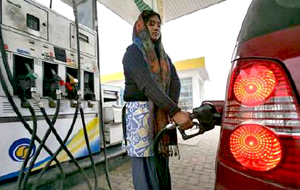 New Delhi, Jul 9: Get ready to pay more for cooking gas and diesel, where the government may allow oil marketing companies to raise prices by at least Re 1 every month to pare their losses following the steep rupee depreciation.
New Delhi, Jul 9: Get ready to pay more for cooking gas and diesel, where the government may allow oil marketing companies to raise prices by at least Re 1 every month to pare their losses following the steep rupee depreciation.
The impact of the near 12% fall in the rupee against the dollar since the financial year began in April will translate into higher prices for almost everything - from imported toys and cars to imported food products and mobile phones. In any case, cost will rise even for domestic manufacturers who depend on imported raw material. A higher price of imported coal will make electricity more expensive. Similarly, companies such as Steel Authority of India Ltd will find it tough not to pass on the higher burden given that coal will be costlier.
Edible oil price may provide some relief against the backdrop of the gloom as global prices have fallen nearly 30% and the rupee's depreciation will not impact this critical kitchen ingredient.
But consumer electronics players such as Samsung and Sony are in the process of raising prices by up to 5%. Even battery maker Exide has blamed the sliding rupee for increasing prices.
Unlike most industry segments, where prices are unregulated, oil companies are staring at the prospect of a Rs 1.2 lakh crore hit because of the rise in crude import costs. As a result, they are making a case for a steep increase in prices. Alternatively, they said, the government should take a larger share of the burden. While the cost of crude for Indian refiners is $103 a barrel, in rupee terms, it translates into a record cost of around Rs 6,250 a barrel.
At the start of the month, despite the monthly 50 paisa hike in diesel price, oil companies were losing Rs 8.60 on every litre of the motor fuel. Similarly, the impact on a subsidized cooking gas cylinder was nearly Rs 380.
"The 50 paisa increase worked for three months, but it doesn't work any longer. Cooking gas price should be increased by Rs 100 a cylinder to provide some relief. Else, the oil ministry wants the government to bear the burden," said an officer, adding that a decision was not taken yet.
Informal talks have been held in the government and the petroleum ministry is looking at the numbers for the June quarter.
While a price hike will provide comfort to oil firms, a sharp increase in diesel price will result in accelerating inflation, which the government may not be very keen on given the spurt in vegetable prices and elections in five states, followed by the 2014 general elections.
At the same time, the government will be under pressure to raise prices due to the stress on public finances, which will only get accentuated by the sharp depreciation of the rupee. The government is left with only Rs 20,000 crore to pay as oil subsidy this year and is expected to provide more to fund the gap. It will also have to pay a higher subsidy to fertilizer companies as imports will be more expensive.
All this will undo the work done by the government to contain the fiscal deficit and expose the country to the possibility of a ratings downgrade, which will put India's sovereign rating into junk grade.





Comments
Add new comment